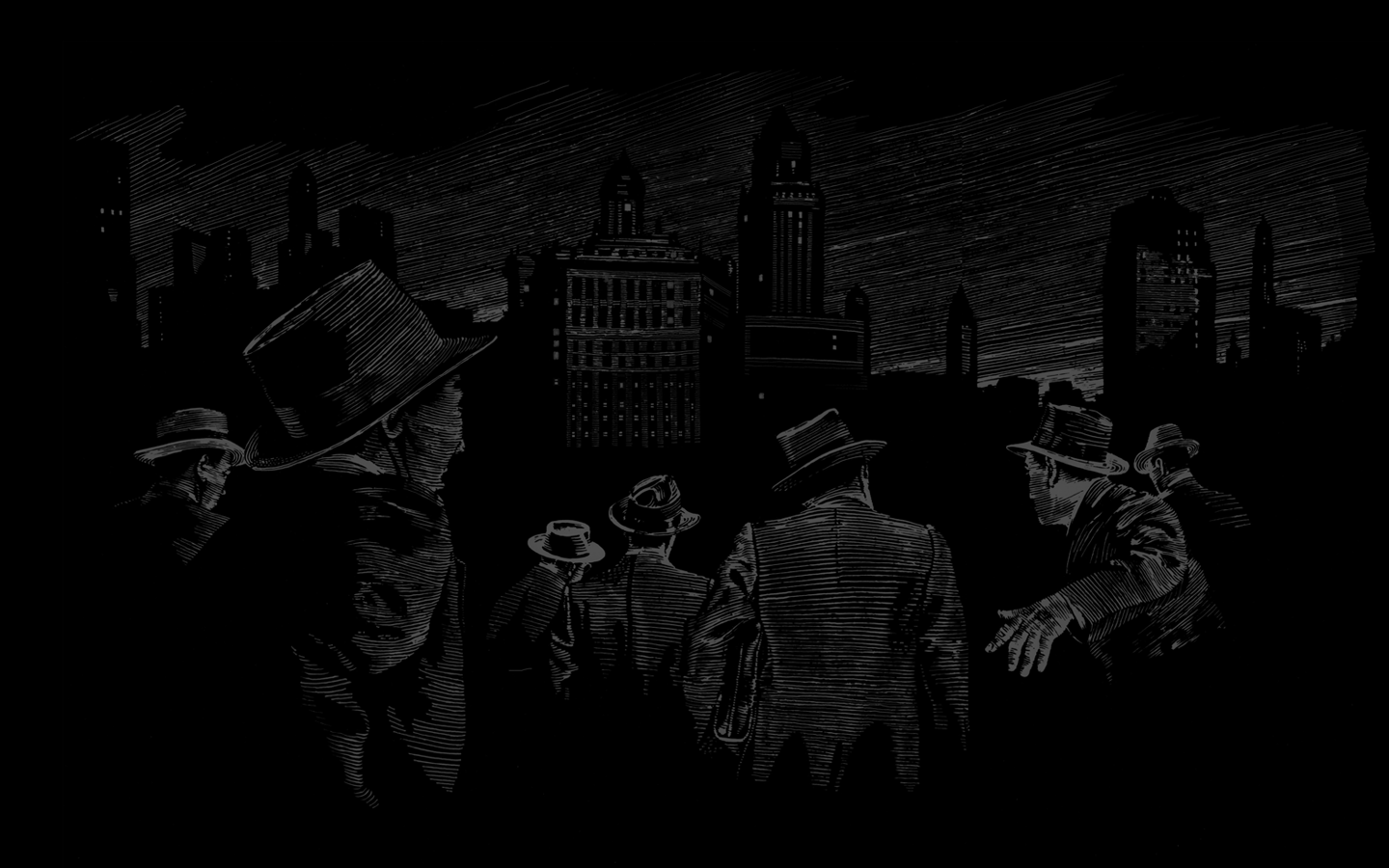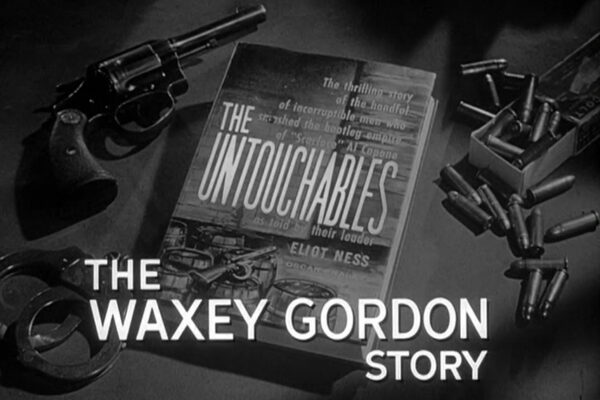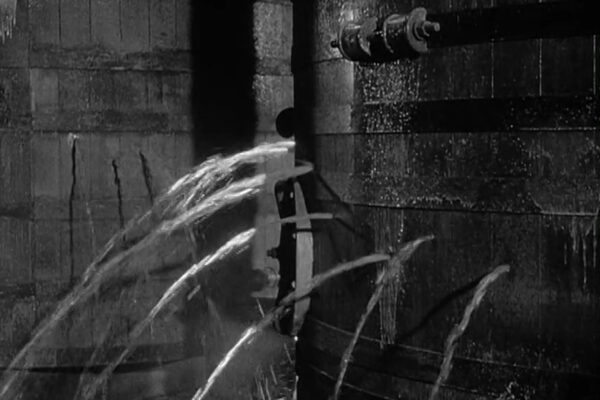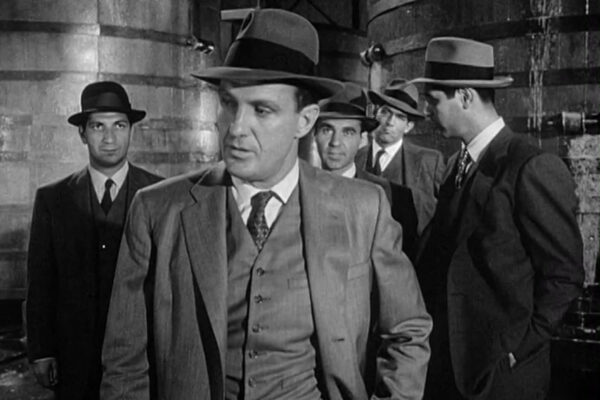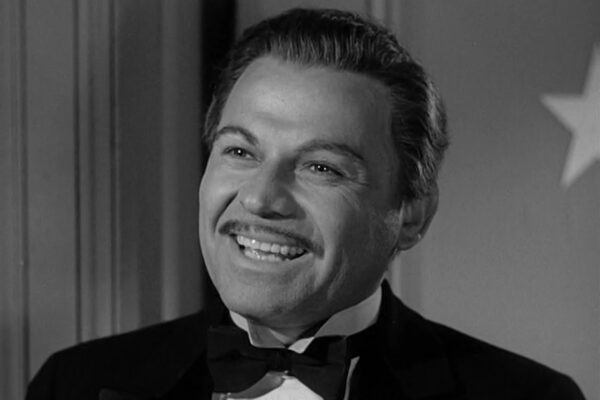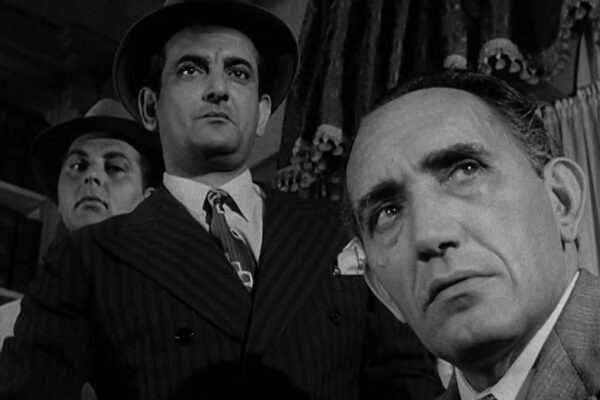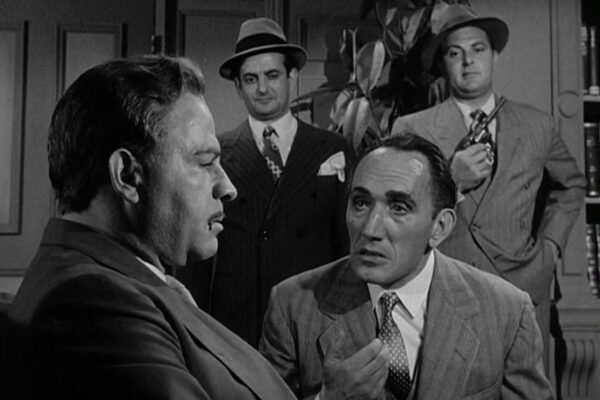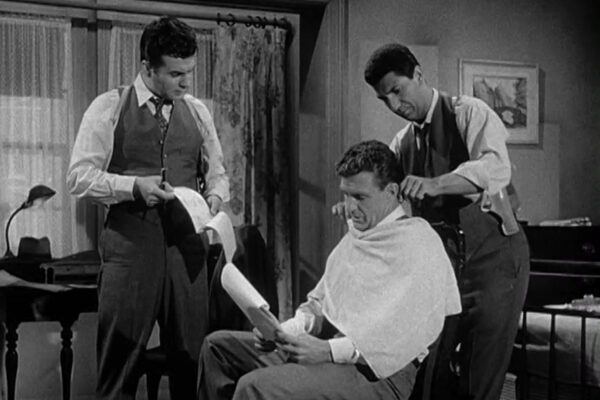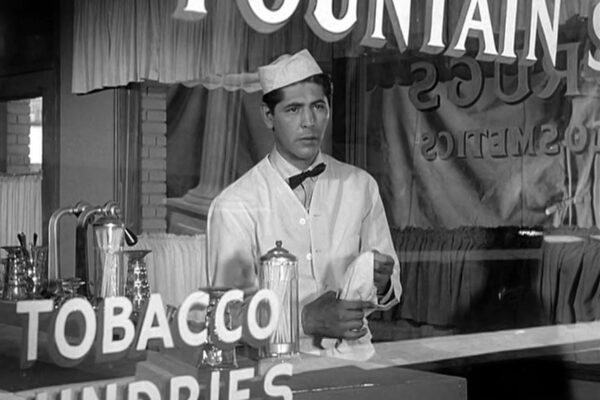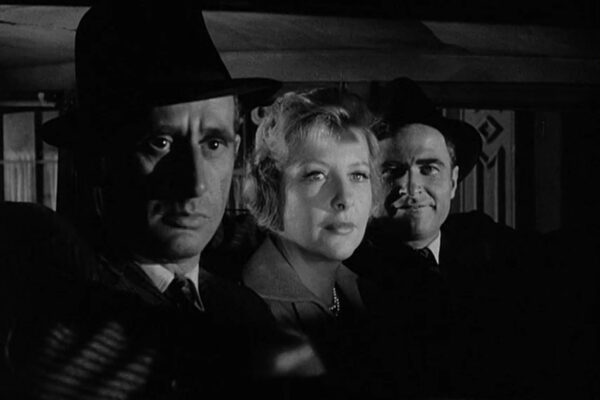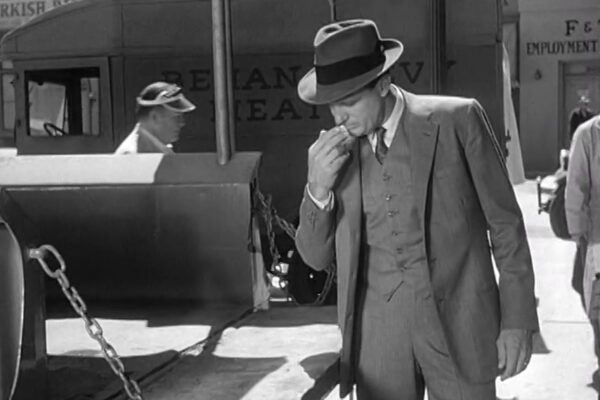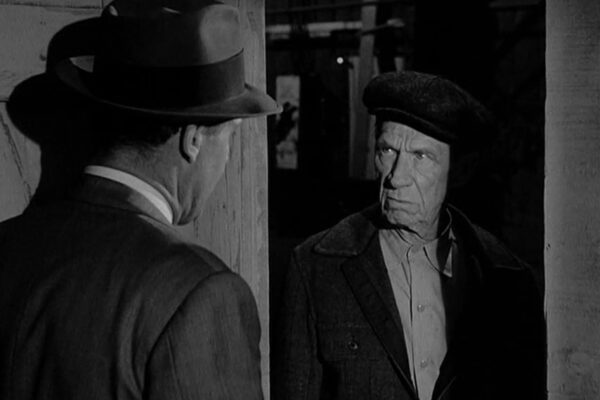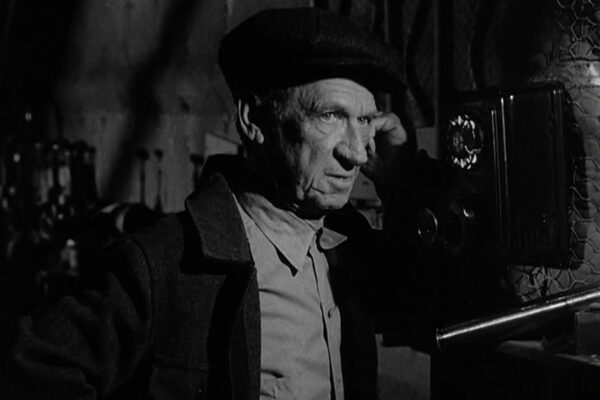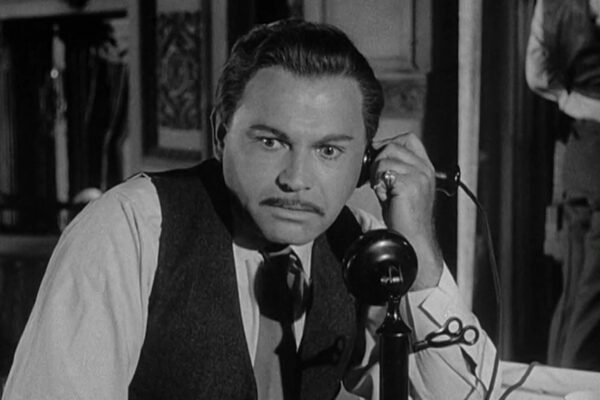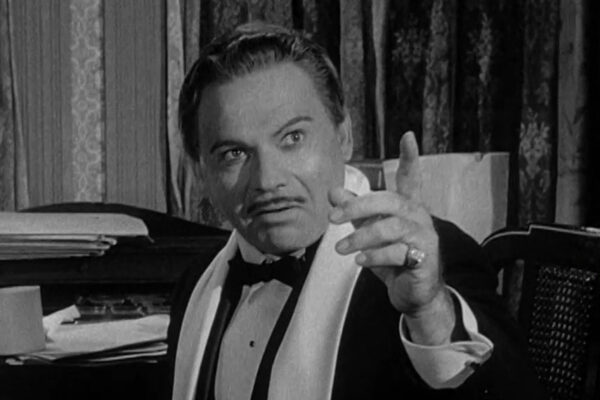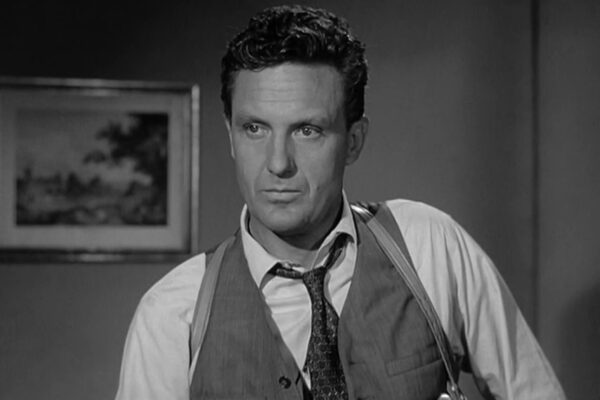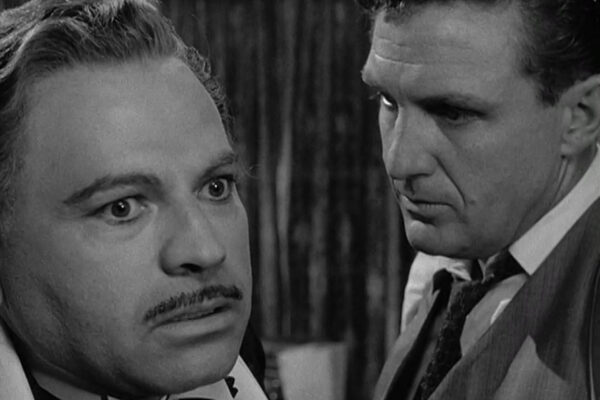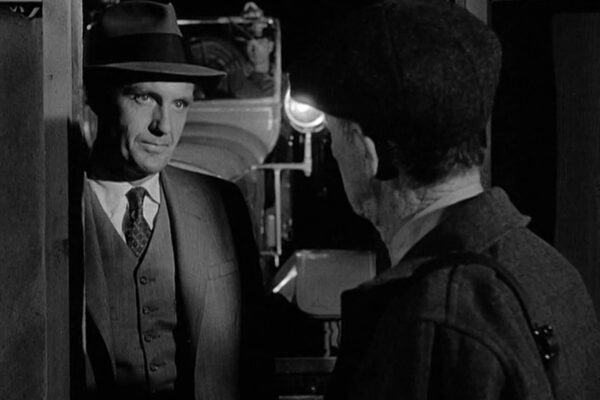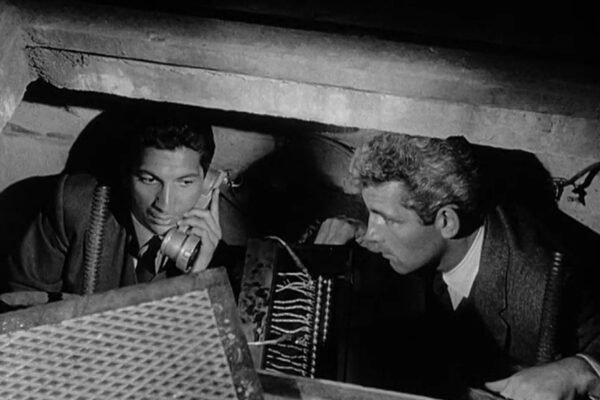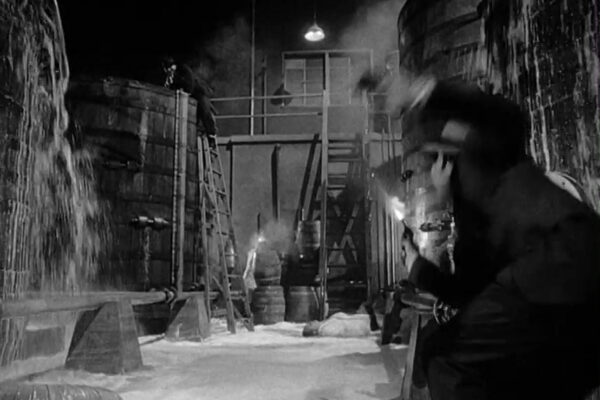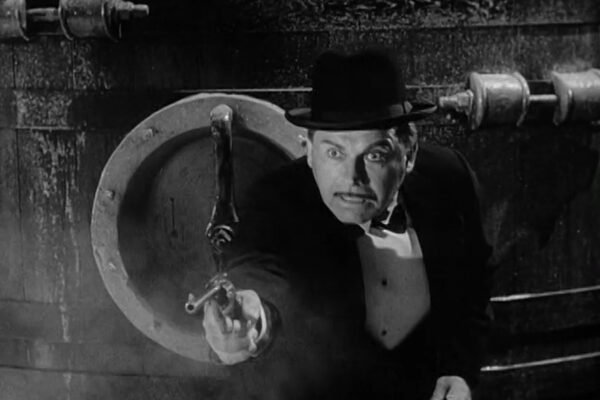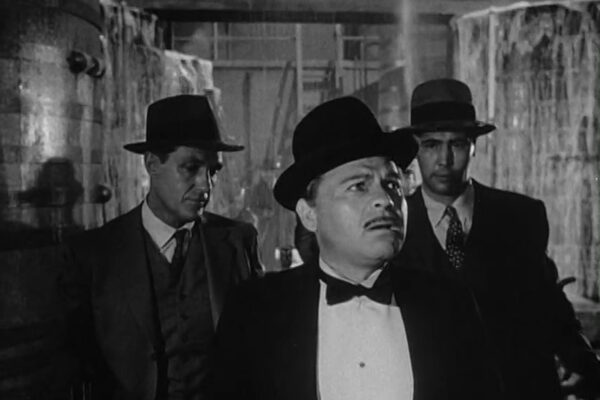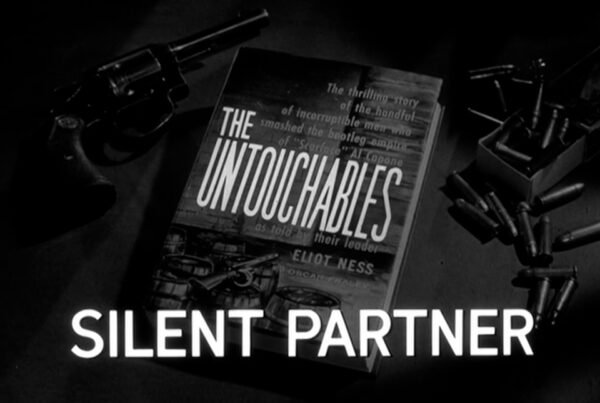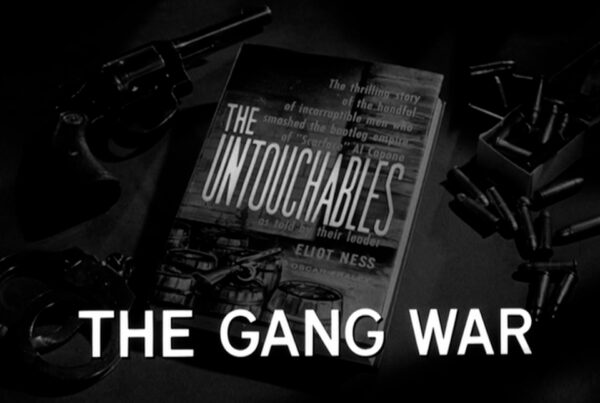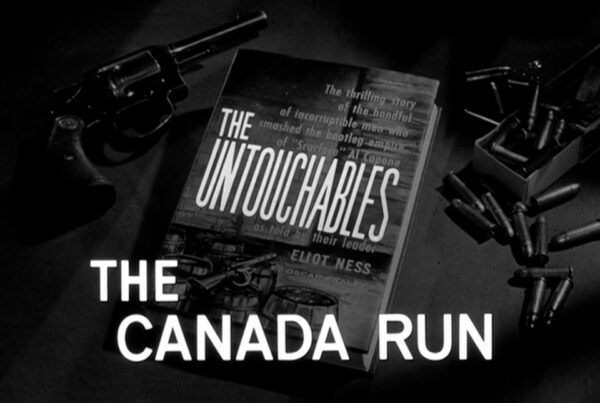THE WAXEY GORDON STORY
Airdates: November 10th, 1960 and June 22nd, 1961
Written by Joseph Petracca
Directed by John Peyser
Produced by Josef Shaftel
Director of Photography Charles Straumer
Co-starring Frank De Kova. Special Guest Star Nehemiah Persoff. Featuring Elizabeth Hush, Terry Huntington, Sam Gilman, Adam Becker, Walter Reed, Edgar Stehli.
“On the night of April 16th, 1931, Waxey Gordon, public enemy number one, the unchallenged beer boss of New York, began his campaign to take over the illegal beer traffic in the entire State of New Jersey. It was controlled by Frankie Dunn, Bugs Donovan, and Roger Wyden.”
After a New Jersey brewery massacre that eliminates Franke Dunn, federal authorities are convinced that prominent New York stage producer and socialite Waxey Gordon (Nehemiah Persoff), is expanding his empire and Eliot Ness is assigned to the case.
Not one to give up without a fight, Bugs Donovan (Frank De Kova) hires two gunmen to kill Gordon, but they miss, killing his companion, a young showgirl. Frustrated, Donovan calls for a truce but Gordon buys the loyalty of his opponent’s top men, and Donovan and Wyden are slain.
Attempting to catch Gordon on unreported income, Ness assigns each of the Untouchables to stakeouts near small independent malt and hops suppliers. Youngfellow soon discovers two familiar gangland faces doing business with one in particular: the Ainslee Malt & Hops Company. Ness confronts its owner (Edgar Stelhi), an elderly and intimidated man, who breaks down quickly and promises to provide a paper trail for Ness to use in court. But the man’s secretary tips off the Gordon mob and the old man’s car is rigged with explosives.
Going after Gordon’s beer business, the Untouchables follow a suspected beer delivery truck returning to what they believe to be a brewery. Returning later with a warrant, they burst in only to discover an empty warehouse. Soon afterward, Gordon arrives to offer Ness a bribe but succeeds only in furthering his resolve.
During a stakeout at Gordon’s opulent mansion, the Untouchables discover an important license plate number that leads them to the office of one Commissioner Anderson in the department of public works. There, they learn of a recent pipeline project that turns their attention back to the empty warehouse. Suspecting that the warehouse is a distribution point, Ness arrives with the aid of a pumper from the local fire department. Attaching high-pressure hoses to a pipe stand that smells of beer, Ness orders the firemen to force water into the line, while Rossi and Youngfellow monitor a tap of Gordon’s phone.
Soon beer begins backing up and foaming over the edges of the large vats, creating havoc. The brewmeister frantically phones Gordon, who runs to the scene of the disaster. Tracing the call from the brewery, the Untouchables arrive to engage in a fierce gun battle as the vats continue to overflow. His men shot up and his brewery flooded, Gordon throws down his gun and surrenders.
“Commissioner Anderson was sentenced to serve 10 years in prison. The court was lenient with Otto Schneider, the brewmeister. His testimony enabled a federal court to piece together Waxey Gordon’s lucrative beer operation. According to Otto Schneider, 7000 barrels of beer were turned out each week, each barrel selling for $20, making a gross income of $140,000 a week, more than $7 million a year, a truly princely sum, for which Waxey grudgingly gave the tax collector only $1,000 a year. Waxey Gordon might have been slippery, but he wasn’t slippery enough to get out of Alcatraz, where he died on June 24th, 1952.”
REVIEW
In a publicity still, Robert Stack strikes an iconic pose during the raid on Waxey Gordon’s brewery. This image would be later adopted for use in promotional posters for The Scarface Mob.
Robert Stack recalls The Waxey Gordon Story as an episode written in reverse. The idea of a blazing gun battle in front of backed up and overflowing beer vats came first, then a story to end in this manner was written to make it happen. What certainly appears as a flippant way to write a teleplay turns out to be a fascinating storyline with good casting and fine performances. The idea was a new angle in the now familiar but still interesting brewery battle, reinforcing the classic image of Eliot Ness, Thompson gun in hand, illicit suds lapping at his trousers. A contemporary review of the episode joked that the episode is “sudsier than the soapiest of soaps…No one drowns in the foamy stuff, but plenty of men get shot and the beer runs as red as a Western sunset.”
Nehemiah Persoff absolutely menaces his way through the hour as Waxey Gordon in his return to the series after two guest star appearances as Capone bookkeeper Jake Guzik in The Empty Chair and the flashy Johnny Fortunato in Head of Fire – Feet of Clay. Persoff relishes the opening scene as he brazenly throws a Thompson under his arm to perforate a rival’s brewery, squeezing off a final round just for good measure as he walks away.
Based on the real-life hoodlum Waxey Gordon, screenwriter Joseph Petracca uses the character to establish Ness’ never-ending war against a rogues gallery of garish Public Enemies and Persoff relishes the occasion with aplomb.
“Bob Stack was really Eliot Ness. He had the qualities of a detective. It almost irritated me. I wanted to hit him,” Persoff wryly recalled in a 2019 interview for The Untouchables Retrospective.
Persoff channels this playful indignance in the hour’s most memorable scene, where Gordon and Ness square off amidst a bribery attempt. The scene is a masterclass not only in acting, writing and directing, but into Desilu’s Untouchables lore, forging in stone that not only is Eliot Ness untouchable, but he is also immovable – and he will slap you around the room if you cross the line. This scene also encapsulates just how Robert Stack’s seething, understated approach to the character of Eliot Ness burned brightest when paired with monologuing, soliloquizing foes.
In addition to this confrontation and the finale, the episode features other great creative flourishes, like Rossi cutting Ness’ hair in a nice tip to his original career as a barber (“I’m out of practice, you changed my trade,” he says) and Ness’ failed raid on Waxey’s empty warehouse.
Cinematographer Charles Straumer finds ways to constantly place the Untouchables in satisfying compositions, especially as they stand astride a bombed car in a windy city street, surrounded by shards of burned evidence.
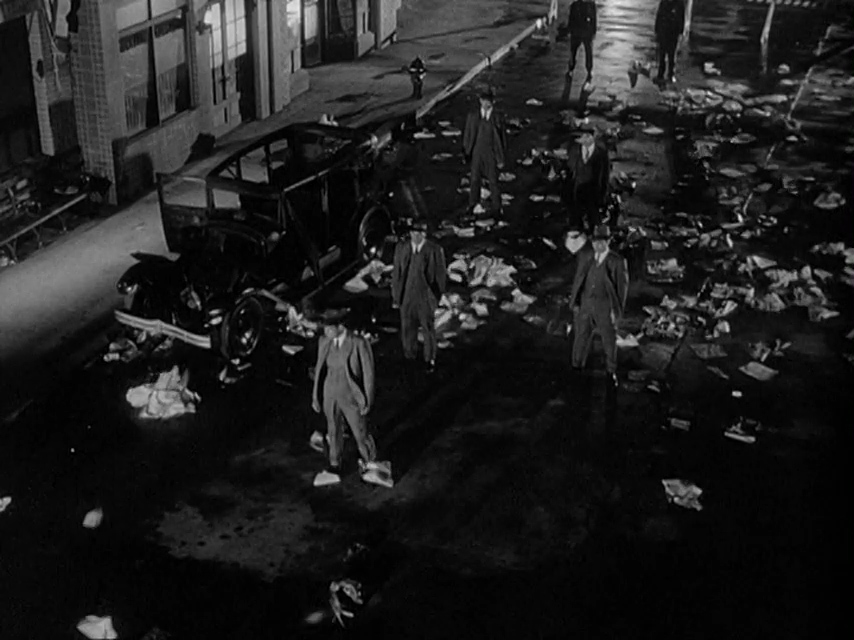
“There was a feeling of being a part of a big broad on The Untouchables…We were all part of a mystique,” explained Persoff. He credits the cast and John Peyser (who directed him here and in The Empty Chair) as being one of the primary reasons the show felt so tight-knit. Only three episodes into the Second Season, the creative family behind The Untouchables was now in full gallop.
Unless you were an official in Union County, New Jersey, where representatives accused the show of libel.
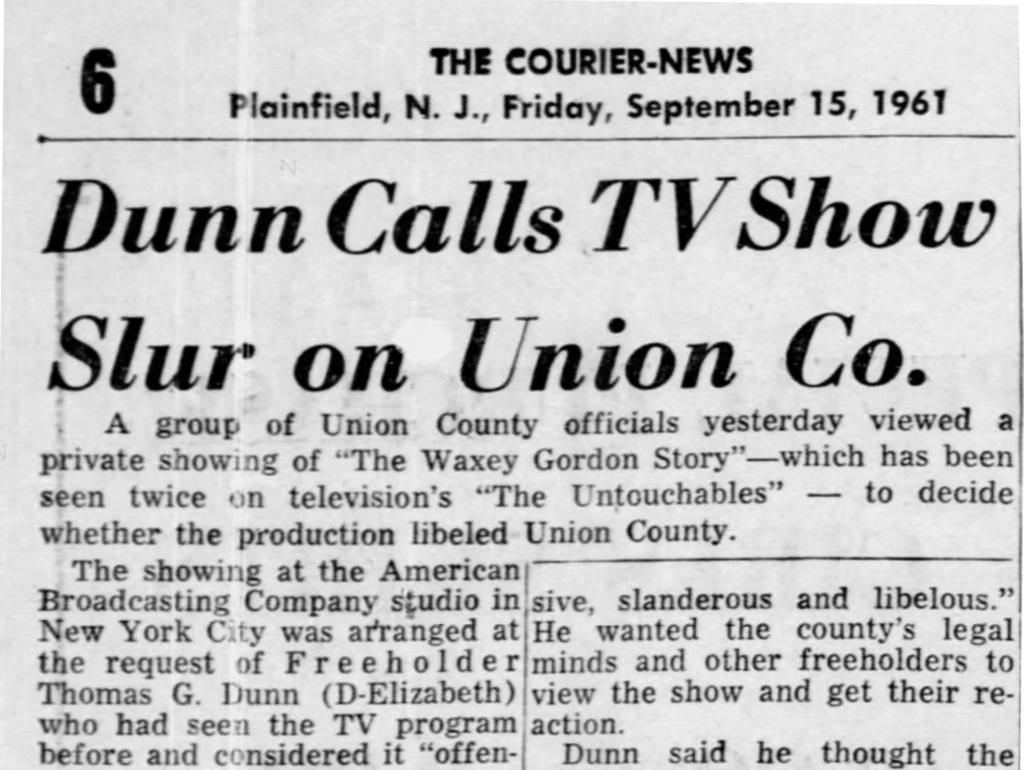
“Union City officials are honorable men and always have been and would never have consorted with the hoodlums portrayed on televisions, “Untouchables,” city representative Thomas Dunn said in a statement demanding an investigation for the “diabolical portrayal,” despite the fact that Commissioner Anderson was a “man of fiction.”
While this minor incident and accusations of libel blew over, it would pale in comparison to the enormous uproar Desilu would face for the Second Season’s two-part episode The Big Train just eight episodes later.
The simmering battle of myth versus reality was only just beginning.
QUOTES
WAXEY: I’ll tell you something, Mr. Ness. If I have trouble with one of my shows I’ll bring you in to fix it up. You got a big sense of humor there.
NESS: I’m glad you’re laughing.
WAXEY: I’ll tell you why I’m laughing. It’s like I’m on a roof looking down at you playing blind man’s bluff, going around in a circle and bumping into things and all you get from that is a sore nose. Now if you was really smart, you’d switch to something thats more lucrative.
NESS: Like what?
WAXEY: Well, like follow the leader for instance. You remember that game when you was a kid?
NESS: Go on.
WAXEY: It’s simple. All you do is play along, and do like the other guys do and pick up a fortune on the way.
NESS: And what happens to my amateur standing?
WAXEY: Oh, get wise Mr. Ness. You’re not the only one. There are other guys working for the government…
NESS: For instance?
WAXEY: You think I’d tell you?
NESS: Just testing in case you convinced me.
WAXEY: Well that’s wise, Nr. Ness. You see now you learned something. I protect my playmates.
NESS: What are you so anxious about if you’re not running beer?
WAXEY: So far, even if I was in beer, I’ve outfoxed you on every turn. Okay. You say I got beer in the empty warehouse, I got nothing. But you keep following me, worryiing me, for no good reason. Now come on, wise up Mr. Ness. I kmnow what you make a year to the very penny. The clothes your wife wears. The squeeze. She’s gotta make that budget go all the way. It’s time you turned pro. You risked your life. You stick your neck out. You might as well make it pay.
NESS: Are you just talking or making a bonafide offer?
WAXEY: I put my money where my mouth is.
Wazey rolls a wad of bills off a desk and into the garbage.
WAXEY:Now, a lot of guys reach into that wastepaper basket and come out woth gold, others reach in and come out with the garbage. Now which is it gonna be?
Ness picks up the basket.
NESS: That’s quite a wastepaper basket.
WAXEY: It’s like magic. All you gotta do is say the word. Now what do you say?
Ness dumps the garbage on Waxey’s lap.
WAXEY: The man says no comment.
NESS: Now take your blood money and get out of here before I sweep you out with the rest of the trash.
WAXEY: Mister, I come up up the hard way, from nothing. From the cellar to the roof, and now I got the best suits, a new suit every day with a tie to match and I drive the best cars. You know why? Because I got brains and I take it as a gift – a gift– that I wasn’t born like you. You know why? Because you belong in that waste paper basket. Ah, what’s the use. I write you off, Mr. Ness. It’s the same when we was kids, there was always some kids that wouldn’t play along with the others.
NESS: Maybe he didn’t like your rules.
WAXEY: Nah, nah. That’s not it. It’s because you guys are all alike. You’re yellow!
Ness wordessly slaps Waxey hard across the face.
WAXEY: The last time somebody did that to me. He had an accident for good.
NESS: Get out.
WAXEY: Okay. Public Servant Number One.
OBSERVATIONS
• Winchell says that John Carvell, the Attorney General for the Southern District of New York, called in Eliot Ness. Carvell is featured in Portrait of a Thief, making this mention another small degree of continuity in the Ness-verse.
• This episode makes great use of the Culver City main street set as a freight depot. In the same scene, an extra is seen accidentally knocking his hat off behind Robert Stack.
• Frank DeKova plays a minor part in this episode. As a character actor, he is a perfect complement to the series and one of the few to enjoy a recurring role, appearing three times as Nitti’s “hatchet man,” Louis Campagna. Later in the Second Season, DeKova will return in perhaps his best role in the series as the nefarious and drug addled Judge Foley in The Underground Court.
HISTORICAL NOTES

The real Waxey Gordon on a date with the New York Police Department in 1933.
Irving Wexel, otherwise known as Waxey Gordon, was a notorious East Coast gangster who participated in a variety of violent criminal enterprises and enjoyed several jail sentences throughout his life as a result. In 1933, the Baltimore Sun proclaimed he was “New York’s Al Capone.”
During a raid on a warehouse in Patterson, New Jersey in 1933, Prohibition agents uncovered 6,000-feet of rubber pipes that funneled beer and sundry items to various points in town, including the Lehigh Valley Railroad Station where the alcohol was distributed via freight cars. In the episode, Gordon’s clever ruse makes Ness’ idea to flood Gordon’s brewery all the more ingenious.
Waxey Gordon was eventually charged and sentenced on charges of tax evasion. After his release, he was later arrested for selling narcotics to an undercover police officer and thanks to his long criminal history, was finally sentenced to and would later be transferred to Alcatraz, where he died of a heart attack in 1952. During his final trial, the judge was implacable, telling him “You have demonstrated repeatedly that there is no crime or racket to which you would not resort in order to make a dollar. Your latest and most dastardly offense is typical of your hostility, and it should ring down the curtain on your parasitical and lawless life.”


